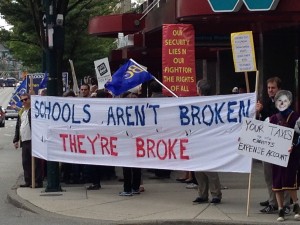Applications are now invited from BERA members for the 2015 Fellowship.
Background/purpose
The Fellowship will last for one year and the award of £5000 will be made available to an individual with the most compelling proposal for a piece of research in the field of educational technology. There are no restrictions as to age or experience: applications are welcome from all those working in the field.
The Fellow and their work is also used an opportunity to promote the work of the Journal.
It is expected that a progress report on the research will be presented at the BERA 2015 Conference and should lead to the submission of an academic paper to BJET in early 2016.
2015 Theme
The theme for submissions this year is “How can educational technology use support or increase inclusion and participation of all learners?” Some examples of research topics that might fit under this theme are listed below. Applicants may also submit applications on other topics that are clearly related to the above theme.
• What impact has use of learning technology had in the UK (or ‘your home country’) since 2012 on one of a) children or adults with disabilities, b) pre-school children from disadvantaged backgrounds, c) children or adults living in remote or rural areas?
• How can educational technology help to increase participation of more learners in schooling in developing countries? Can it help to reach children who are not in school, especially those in rural areas?
• How can mobile technology help to support or increase inclusion and participation (in UK or any country)?
• How do Bring Your Own Device (BYOD) schemes help to increase access to technology in schooling, and what challenges arise? How can we ensure that children from disadvantaged families can participate equitably in BYOD schemes?
Criteria
The Fellowship is awarded to an individual with the most compelling proposal for a piece of research in the field of educational technology. There are no restrictions as to age or experience: applications are welcome from all those working in the field.
As a condition of the award the Fellow must provide BERA with a brief report at the end of the Fellowship period. It is expected that work undertaken in connection with the Fellowship suitable for publication, should be submitted to BET in the first instance.
Eligibility
1. The BERA BJET Fellowship may be made biennially.
2. Proposals should be for work up to a year.
3. Candidates for the award must be members of BERA at the time of nomination and remain so through the life of the Fellowship.
Nomination process
Individuals or teams can self-nominate. The application should be compelling: length is not a particular virtue! Submissions should include the following:
I. Applicant’s name, title and BERA membership number;
II. Title / theme of proposed research;
III. Brief (600 words maximum) outline of proposed research, and its relevance to the stated purposes of the Fellowship (see above);
IV. Why you want to do this work.
V. The aim, design, methods and anticipated outcomes of the research.
VI. The timescale of the work.
VII. How the Fellowship award will be spent.
VIII. Amount of grant requested (£5000 maximum) and how this will be used over the life of the Fellowship;
IX. A short CV;
X. The date when the work would commence and the date when a brief report (1-2 sides of A4) would be submitted to the BERA office, outlining the achievement of the research, accounting for expenditure, listing any publications arising from the work, and summarising where it is hoped it leads;
XI. Signature of applicant / date;
XII. Signature of institutional authority responsible for administering the grant (if applicable).
Selection process
The judging panel will consider the nominations and make a recommendation for the Award to the Academic Publications Committee. All nominees will be notified of the outcome.
The awarding of the fellowship is made by judging the content of the proposal alongside the following criteria:
* Relevance e.g. to the aims of BERA and promotion of educational research; relevance to the theme for this year’s submissions
* Clarity e.g. of research question(s); of focus of research; of proposal, etc.
* Quality e.g. is the research robust, ethical, well designed etc.
* Significance e. g. will the research make a contribution to knowledge, theory building, practice or policy etc.
Timing
Applications must be made by 5th January 2015. If necessary, interviews of the shortlisted candidates will take place (probably via Skype) in January 2015, and the successful applicant will take up their Fellowship on 1st February 2015.
Prize details
The winner will receive:
• Up to £5,000, depending upon the detail of their application.
• The opportunity to have a summary of their research published in summary in either Insights or Research Intelligence.
All nominations and enquiries should be made to admin@bera.ac.uk

 Follow
Follow